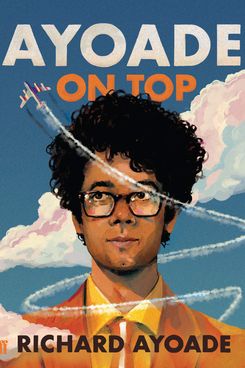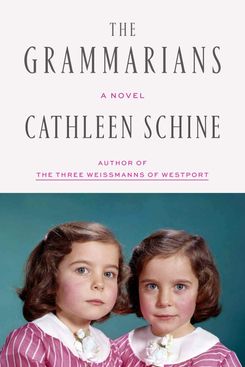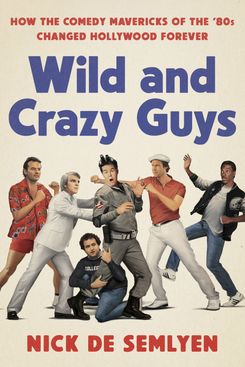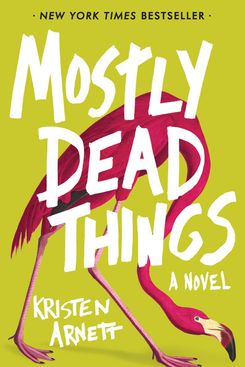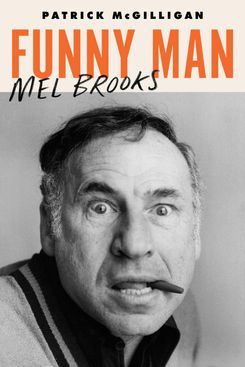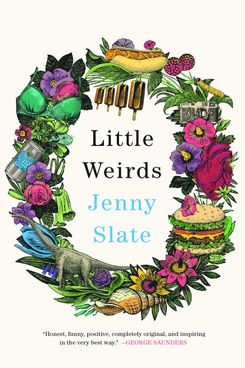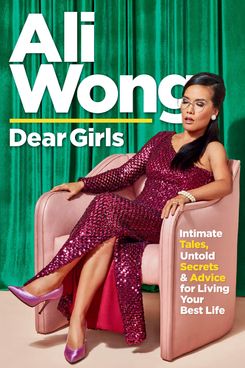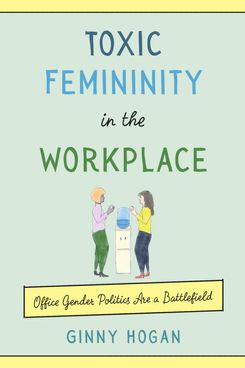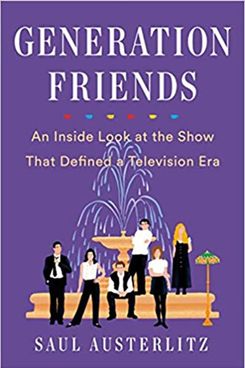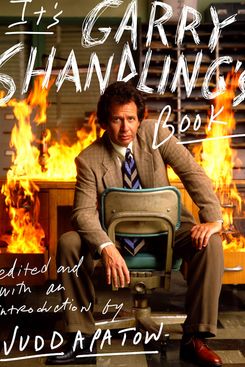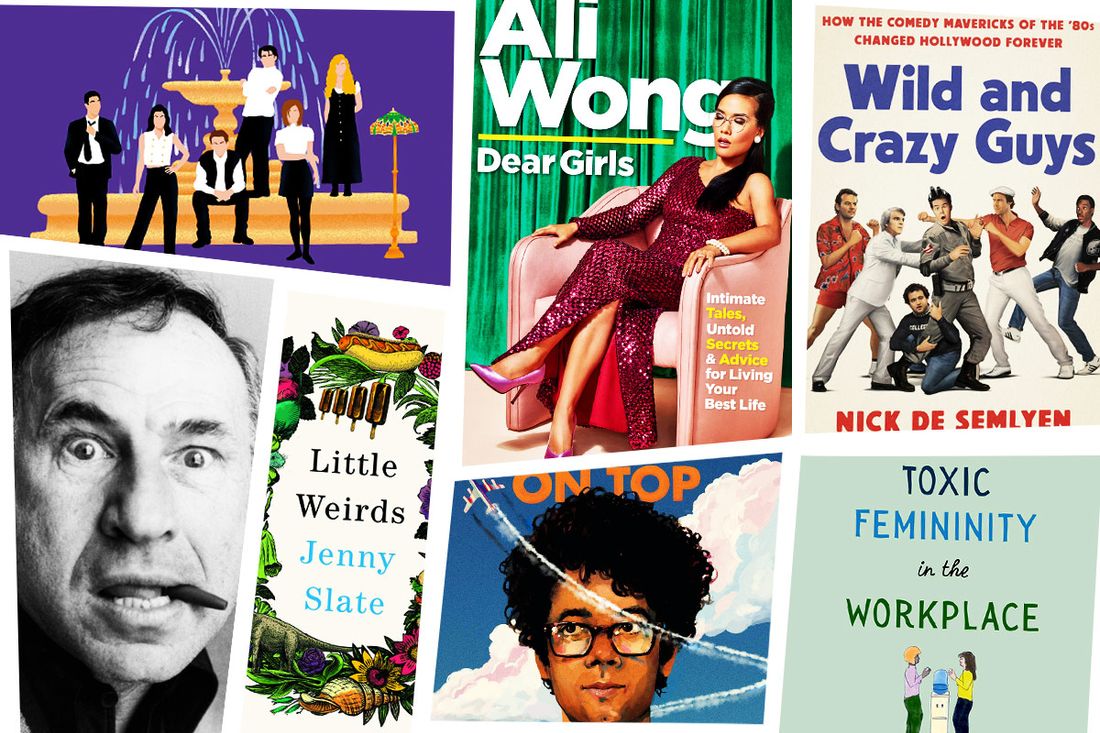
Books of a comic nature are certainly less heralded than their funny brothers and sisters in the realms of film, television, stand-up, and podcasts. But let’s show the written word some respect — it mainlines directly from page to your brain without any images or sounds to carry it along, merely your own imagination and functional literacy. And after all, the best comedy movies, TV shows, stand-up specials, and podcasts all started out as written words on a notepad or screen. (Okay, probably not podcasts).
What physical bookstores remain standing (and their online robotic counterparts) offered many choices to the comedy devotee in 2019. The genre of “comedy books” is a loose, widely encompassing definition. In discussing, praising, and ranking these books, we’ve considered books about important comedy people, books written by comedy people about their life and work, books on comedy theory, funny gift books, satirical books, comic novels, and works of fiction with a through line of humor. Here then are the ten most notable — and exceedingly outstanding — books of this type (or types) released over the previous 12 months.
10. Ayoade on Top
Ayoade — Moss from The IT Crowd, the host of Travel Man — often exudes a fussy, nervous, slightly above-it-all quality with a little bit of self-loathing and arch sarcasm thrown in for good measure. That character clearly comes out in Ayoade on Top, a book of film criticism Ayoade seemingly wrote in character as a man with a frenetic drive to document and analyze every frame of the serviceable but forgettable 2003 comedy View From the Top, in which Gwyneth Paltrow played a cheerfully careerist flight attendant. She’s a Becky Sharp of the skies, which is exactly the kind of thing Ayoade would say in this book, an elegant, ambitious, extremely long joke that he somehow pulls off without getting tired, tiring the reader, or coming across as a jerk needlessly and ironically mocking an easy target. It’s more of a comment on critic culture, that anything can and will be examined and too much at that. (The irony is not lost on me that I just wrote a critical assessment of Ayoade on Top for a year-end best-books list.)
9. The Grammarians
I admit, The Grammarians caught my eye because the premise sounded like it would be exactly the kind of wacky thing I like — it’s about squabbling twins who are both obsessed with the English language. (Daphne is a column-writing grammar “scold,” while Laurel turns old War Department correspondence into poetry.) As it turns out, it wasn’t a comic novel of the Jack Handey or John Swartzwelder variety, with endless jokes and silly situations. The humor in The Grammarians is cosmic, and funny in the philosophical sense — it’s about the sheer absurdity of life and the hilarious coincidences which ensnare us all. However, it is also a funny book because it is full of funny characters who say funny things — the reader is privy to the entire lives of the central twins, and they have a Gilmore-esque rapport with each other when speaking even in their made-up twin language. While The Grammarians will make you cry, it’s a book about joy and the many paths to unabashed joy, and isn’t that what comedy is all about? (Yes. It is.)
8. Wild and Crazy Guys
This is one of those books you can’t believe hadn’t been written yet. While there exist books about individual late ‘70s and 1980s comedy films like Animal House and Caddyshack, this is the first time a writer has tried to make sense of the big picture of Reagan-era, mainstream comedic movies. While the people who made those movies, the subjects of Wild and Crazy Guys, are undeniably talented, hilarious, and important — Steve Martin, John Candy, Eddie Murphy, Chevy Chase, John Hughes — they are almost all straight white dudes, and they all got a big boost of the early, punklike years of Saturday Night Live and Lampoon publications. In this regard, Wild and Crazy Guys functions as an indirect biography of Lorne Michaels, or a companion piece to Live From New York or A Futile and Stupid Gesture. But because de Semlyen uses scores of contemporary reporting, the book doesn’t feel like a history book far removed from its topic, but a more visceral account. It’s easy to forget that the Eddie Murphy craze was the closest the comedy world got to Beatlemania, or how Three Amigos was something of a disappointment.
7. Mostly Dead Things
Gallows humor is arguably the most defiant and powerful form of humor. What a brave, bold, and human act it is to laugh at oblivion as it stares back. Mostly Dead Things is about death in the micro as well as the macro. In the case of the former, the plot concerns a Floridian strip mall taxidermist named Jessa-Lynn, who has only just taken over the business from her father who, before his tragic suicide, trained her in the art of skinning, stuffing, and mounting animals to create sometime perpetual and beautiful. Her mother, Libby, has adopted an affinity for ruining all that hard work by posing the creatures publicly in sexually suggestive displays, which earns her a show at a gallery run by Lucinda, a possible love interest for Jessa-Lynn if not a bright spot amid the bleakness of mourning and daily addressing of death on all levels. There’s something darkly and overwhelmingly hilarious about it all — making dead things look alive to fool the living, mixed with the crushing weight of small towns and family legacies. True comedy provokes an understanding from its audience, and Mostly Dead Things draws laughs out of our shared existential dread and the universal pain of grief.
6. Funny Man: Mel Brooks
Mel Brooks is a 90-something EGOT winner, meaning his incredibly accomplished career has finally slowed down and reached such great heights that he was due for an exhaustive biography. The story of Melvin Kaminsky is one of old-fashioned show business, when New York was still the entertainment capital of the world and the influence of vaudeville, Catskills comedy, and Jewish humor loomed large over entertainment. Brooks eventually became virtually the only person keeping all that alive into the mid-20th century and well beyond with what McGilligan reminds us is a brash, audacious, and surprisingly varied film career. Between 1974 and 1976, Brooks made a comic western (Blazing Saddles), a comic horror movie (Young Frankenstein), and even a silent movie (Silent Movie). But Funny Man is a personal biography as well as a professional one, and McGilligan doesn’t shy away from the more embarrassing details of Brooks’s life in either column, such as the seedy actions that led to the end of his first marriage, or his relentless, destructive, callous habit of self-promotion.
5. Little Weirds
Jenny Slate is an omnipresent comic force, but she’s never really fit into a box or taken the same route to fame. She’s led a lot of lives, too — there’s that one season she did on Saturday Night Live (in which she notoriously said a bad word on live TV), but she also stole Kroll Show from its star (Pretty Liz! Niece Denise!), made the baffling web series Catherine, and delighted the world with Marcel the Shell With Shoes On. Her stand-up act isn’t set-up/punchline, more of a mix between crowd work, one-person theatrical performance art, and Birbigliesque storytelling. It’s very exciting and refreshing then when Slate got what most major comedians get — a book deal — and the result is wholly original and uniquely hers. Little Weirds seems like a collection of self-reflective essays about Slate’s childhood, career, love life, body image, and aspirations, but she writes in this lyrical, musical, even poetic way. The guardedness typical of the comedian memoir is thus gloriously stripped away, as is the self-deprecation usually found in such books. Jenny Slate celebrates herself, and her whole being. She manages to be whimsical but hilarious but vulnerable.
4. Dear Girls
Here’s another comedian memoir/essay collection, but one that completely rejects the usual format of those kinds of reads. This is not yet another book of embarrassing moments and failures written without a trace of self-awareness by a wildly successful person. In addition to American Housewife and Always Be My Maybe, Ali Wong is most famous for her classic stand-up special Baby Cobra, which she performed while extremely pregnant. The public now associates Wong with motherhood, so she wisely took on the epistolary approach with Dear Girls, presenting her life story as a series of very conversational and revelatory letters to her young daughters. It’s an unflattering, not at all cute, and very filthy account of the rise of Wong, as told to (theoretically) the people who could most benefit from understanding her journey. There are tales of failure and missteps big and small, but Wong owns them — she isn’t self-deprecating as much as she is self-roasting. Stand-ups’ books don’t often feel like they’re written in the voice of the comedian who supposedly wrote them, but Wong’s does — all that crisp, precisely worded vitriol is intact, as is a thoughtful exploration of what it means to be an Asian-American woman in today’s America.
3. Toxic Femininity in the Workplace
It’s the right book for the right time. Stand-up comedian and writer Ginny Hogan created this fully illustrated collection of scorching and pointed essays, bits, and short stories that only looks like an innocuous gift book. Hogan captured something that was very much in the air in 2019, a zeitgeist if you will, of the #MeToo and Time’s Up era of women fighting back against the hopelessly horrible and sexist work environments that’s made employment unbearable and soul-killing for so many for so long. Apart from that, the cleverly titled Toxic Femininity in the Workplace is just so damn funny, a thorough indictment and gasp for air amidst the soul-killing, energy-sucking grind of office life that’s also a vital tool in the daily hell of not offending the pathetically fragile egos of male co-workers.
2. Generation Friends
Half the internet seems to consist of articles about Friends. Clearly, everybody likes Friends and can agree that it’s good — but why is it good, and why do people like it so much? Saul Austerlitz seeks to answer (and actually does) that question in Generation Friends, a delightfully thorough history of the 1994–2004 Must See TV staple, including how it was conceived, how network interference almost ruined it, and the effect it had on the culture at large and TV comedy. Friends really was a masterclass in comedy writing (and sitcom creation), and this book provides tons of new information, but it’s Austerlitz’s insights that take this from a fun, frothy fan read into a comedy library must-have. Generation Friends explains both directly and indirectly why some sitcoms work and others don’t, as well as why Friends worked and exactly why it’s funny, despite clunky ‘90s jokes, its lack of non-white people, and that time Ross had a pet monkey.
1. It’s Garry Shandling’s Book
The great Garry Shandling was a private man, and someone who let his work speak for itself. While he coined the catchphrase “How’s my hair?” and dated models, he wasn’t much interested in the superficiality and vanity of Hollywood, only inasmuch as it could be an engine for him to 1) make extremely good comedic television in an era when comedic television was rare and met with resistance, and 2) find enlightenment, solace, purpose, and spiritual fulfillment in doing that. Shandling died in 2016, and the task of sorting through his prodigious diaries and writing notebooks fell to fellow comedy craftsman Judd Apatow, Shandling’s mentee and close friend. Apatow shaped Shandling’s thoughts and scribblings into the fascinating and moving It’s Garry Shandling’s Book. While it’s an intimate look at a man who was hard to know and strove to know himself, it’s also a raw and striving book into the genius-level mind. Apatow formed a cohesive narrative — largely out of Shandling’s own words — about the agony of being a genius, as well as why and how they create. All that would make this the comedy book of the year, but it’s additionally full of first-hand details about Shandling’s body of work, particularly the staggeringly original It’s Garry Shandling’s Show and the iconic The Larry Sanders Show.
*This article appears in the December 23, 2019, issue of New York Magazine. Subscribe Now!


